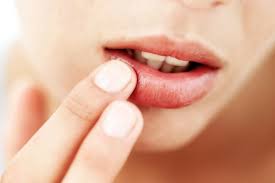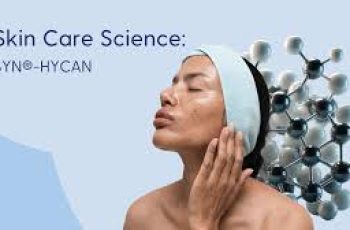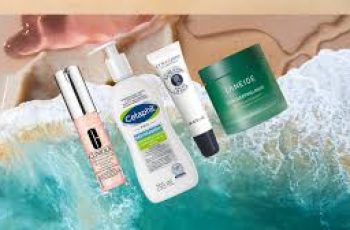
What is The Best Lip Treatment for Dry Lips?
Dry lips are a real pain, and sadly, they won’t be cured in just one day. Patience, attention and time are the keys to helping dry lips.
But it’s not all doom and gloom, we have found the best treatments for dry lips and we are going to share them with you now.
What can I do for extremely dry lips?
Here are some of the top tips we have found that will help treat extremely dry lips:
Up your water intake
Your lips are the first to show the signs of dehydration so ensuring you are drinking plenty of fluids throughout the day is very important.
If you are finding it difficult to drink so much you can also load up on water-dense fruit and vegetables, such as watermelon and cucumber.
Try a moisturise locking lip product
You are spoilt for choice when it comes to moisturising lip products available on the market but we have found that lip butters
which contain either beeswax, shea butter, coconut butter and olive oil will give instant relief from any cracked or severely chapped lips.
You will also find that jojoba oil, rosehip oil and almond oil are extremely hydrating and can be applied more gently to painful lips.
Consider using a humidifier
These are ideal for any buildings or rooms, be it your home or office that circulate a lot of dry air. By using a humidifier the air will be moistened and your damaged lips will get the hydration they need.
These make a great starting point when it comes to looking after and treating dry lips,
by teaming these together with the next set of treatment steps you will have fast and effective relief from any discomfort you may be suffering from.
How to treat your dry lips daily:
STEP ONE
Exfoliating your lips will help to remove any flaky, dead layers of skin and reveal young, smoother skin underneath.
There are many lip scrubs available and you can also try an at-home recipe of coconut oil and sugar.
Simply rub the mixture onto your lips until almost fully dissolved then gently rinse the residue away with warm water and dab dry with a soft towel.
STEP TWO
Using a lip balm on a daily basis will help keep your lips moisturised and protected from any drying factors you may encounter, such as central heating.
There are also some balms that contain an SPF that will help keep your lips safe from any sun damage or burning.
STEP THREE
Finally, you can use an ultrarich moisturising lip overnight treatment. Apply a liberal amount all over the lips, not worry too much about it going over the sides, and head off to bed.
Whilst you sleep the treatment will plump the skin of moisture without the interference of you eating, talking or licking your lips throughout the day.
These are the basic steps that will help you maintain some control of your lips and prevent them from becoming drier.
How do I get rid of dry lips naturally?
Treating dry lips naturally is a lot easier than you would think, trying out at least one of these natural remedies will work wonders.
Rosewater and honey
Honey and rose water will prevent your lips from cracking and provide deep moisturising benefits for the lips.
Simply mix honey and rose water together and apply directly onto the lips, leave it to work its magic for about 15 minutes then rinse off with warm water.
Coconut oil
Applying neat coconut oil to the lips will coat them with a high amount of vitamin E and fatty acids which not only absorb into the skin super quickly but also protects from free radicals that cause damage to the skin.
What is the best product for dry lips?
This really all depends on what works for you, your skin and lips. There are enormous amounts of products to choose from it can feel a bit overwhelming.
Just like we mentioned early treating dry lips is a time consuming and dedicated task to undertake.
Choosing a product that contains any of the natural alternatives previously mentioned, or other more medical lead formulations.
What is the main cause of dry lips?
Our lips do not have any oil glands on them, unlike the other skin found on the body. This makes lips susceptible to becoming dry very quickly and sometimes resulting in them becoming chapped.
Lack of moisture can make the problem worse which is amplified by little to no humidity in the air during the winter months or overexposure to the sun during the summer.
You may also find that you mindlessly lick your lips a little too often which will only make matters worse, the saliva from the tongue will strip the moisture causing more dryness and chapped lips.
What are dry lips a sign of?
The most common problem that is a sign of having dry lips is in fact, dehydration. Your lips are the first to dry out if you have not had enough water intake of the day.
When we become dehydrated our body pulls water from various parts of the body which sometimes needs more help by using a moisturise locking lip balm or a natural alternative
such as almond oil or shea butter will replenish the dry skin and make your lips more comfortable for you to increase the intake of your water quickly.
Can I moisturise my lips overnight?
Absolutely! Overnight is considered the best time to moisturise your lips due to the fact we don’t encounter any central heating, harsh weather, sun exposure and other environmental stresses.
You will also find that you can apply a very liberal amount as there would not be the worry of licking off the product or having to talk, eat or drink with it on.
So there you have the best lip treatments for dry lips, there are some simple and effective options here for you to try and find the right formula that will treat your lips the most effective way,
it’ll have you smiling without having to worry about painful lips cracking in no time!
DQH Knowledge drop: In your 20s, your skin cell turnover decreases. (Cell turnover is a key component in keeping your skin youthful.) You know what else slows down? Your collagen production. Starting in your 20s, collagen decreases by about 1 percent per year. Should you want to prevent fine lines and wrinkles, start by eliminating behaviors that contribute to premature aging. “If it’s bad for you, it’s bad for your skin,” says dermatologist Michel Somenek.
“Cigarette smoking reduces blood flow to the skin and causes premature wrinkling and a dull skin texture. Making the repeated pursed motion to inhale can also cause smoker’s lines. Alcohol and recreational drugs are toxins for the skin that damage its cellular structure and DNA,” Somenek tells us. “The faster you eliminate vices while you are young, the better chance your skin and body have to recuperate.” Also, adopting an anti-aging routine in your 20s is key. After all, the best offense is a good defense. We spoke to Somenek and experts Joshua Ross and Audrey Kunin to find out more.
Keep reading for the best anti-aging products for your 20s, according to skincare professionals.
Sunscreen
“We all know that the sun is the number one cause of skin aging and starting the prevention in your 20s is very important,” Ross says. “The majority of your sun damage won’t start to appear until you’re in your 30s, so don’t wait until you see it surface or you’ll be behind the curve. Stay ahead of it with a good-quality zinc-based sunscreen worn daily.”
Farmacy Green Defense Daily Mineral Sunscreen
An invisible sunscreen with SPF 30, plus botanical extracts meant to protect skin with tons of antioxidants. Bonus: It’s clean and fine to use under makeup.
Bareminerals Complexion Rescue™ Tinted Moisturizer Broad Spectrum SPF 30
Although we recommend you use your SPF and moisturizer separately, we also understand moments when you don’t have time or energy for that extra step. For those times, this bareMinerals moisturizer is a great thing to have on hand.
Vitamin C Serum
“A great introduction to anti-aging is to start with a vitamin C serum in your morning skincare routine,” Ross says. “It’s a powerful antioxidant that will neutralize free radicals and brighten the skin.” He adds that it’s a great way to counteract the effects of the sun’s harmful rays, which, as previously mentioned, are among the biggest causes of premature aging.
Drunk Elephant C-Firma™ Vitamin C Day Serum
The Drunk Elephant C-Firma is a lightweight serum that promises to give skin a glow by combining the brightening powers of vitamin C with ferulic acid, l-ascorbic acid, and vitamin E. The included sodium hyaluronate is meant to replace hydration loss, so you shouldn’t have to deal with any irritation.
Sunday Riley C.E.O. Rapid Flash Brightening Serum
This potent serum is jam-packed with vitamin C (15 percent, to be exact), which means it’s a potential superstar at both brightening skin and dousing it in antioxidants.
Peptides
Using peptides on your skin has many benefits, says Somenek. “The skin barrier is what defends the body against pollution, UV rays, bacteria, and toxins. It can be damaged by several everyday factors. Using topical peptides aids in building a stronger barrier,” he says. “Peptides comprise elastic fibers, which are a type of protein. These fibers help to make skin appear taut and firm. Peptides can also help repair damaged skin, relieve inflammation, and even out skin tone. Some peptides can kill acne-causing bacteria that is common in 20-somethings.”
Kunin agrees, saying, “Peptides are an excellent entry point for supporting collagen.” She recommends looking for face and eye treatments that contain these collagen-boosting powerhouses.
Charlotte Tilbury Magic Eye Rescue Cream
This Charlotte Tilbury super-emollient eye cream has a base of coconut oil and shea butter (read: it’s incredibly hydrating). Botanicals plus peptides are meant to help reduce dark circles and boost collagen, respectively.
This creamy moisturizer serves up potent collagen-boosting peptides and pycnogenol, and antioxidant-rich vitamin C. “Instead of sitting on top of the skin, peptides penetrate the outer layer so they go deep. The ‘signals’ they send tell the cells to produce elastin and collagen, which are needed for youthful-looking skin,” explains Somenek.
At-Home Peel Pads
Remember that skin cell turnover fiasco we talked about earlier? One way to help support it is by exfoliating. “Exfoliation is important to help keep skin fresh and luminous,” Kunin says. She recommends using at-home peel pads as an easy and effective way to exfoliate.
“The goal in your 20s is to fight the slowing pace of cell turnover. It is wise to use products that gently exfoliate, yet still remove oil and other impurities. Products that have Alpha Hydroxy Acids (AHA) or Beta Hydroxy Acids (BHA) are a good choice.”
According to Somenek, you should only exfoliate two to three times a week. “People of all ages are guilty of over-exfoliating and that can be too much of a good thing,” he says.
Dermadoctor Kakadu C Intensive Vitamin C Peel Pad
A few swipes of this Derma Doctor powerful peel pad promise to leave your skin glowing and smooth, thanks to the seven (yes, seven) types of chemical exfoliants, including AHA and BHA. It also contains vitamin C via Kakadu plum extract for added brightening and antioxidant protection.
KEY INGREDIENTS Kakadu plum extract is sourced from the Kakadu plum, a fruit grown in northern Australia. It contains vitamin C, which restores the skin’s natural barrier, increases collagen production, and soothes irritation.
Dr. Dennis Gross Skincare Alpha Beta® Universal Daily Peel Pads
These are the gold standard of peel pads, with a cult following and over 900 five-star reviews on Sephora. They’re easy to use and contain a blend of anti-aging exfoliating acids.
Emollient Night Cream
“In your 20s, you need to start upping the hydration in your skincare routine. You may have been cautious of over-moisturizing because of acne in your teens, but as you enter your 20s, your skin transitions and becomes drier,” Ross says. “I recommend an emollient night cream added into your evening skincare regimen.”
“Twenty-somethings need to make sure that they are not using creams that will clog their pores and cause excess oil production,” says Somenek. Opt for non-comedogenic products.
Cerave Skin Renewing Night Cream
One great choice is the CeraVe Skin Renewing Night Cream, which is a non-comedogenic night cream that leaves skin soft and glowy. It combines the moisturizing powers of ceramides and hyaluronic acid.
RoC Retinol Correxion Max Hydration Creme
“The best night cream ingredients contain retinol, benzoyl peroxide, and/or salicylic acid or hyaluronic acid. The goal is to moisturize, yet remove excess oil,” says Somenek. This Roc Retinol Correxion cream fits the bill as it contains both hyaluronic acid and retinol so it promises to moisturize while also being non-comedogenic.



